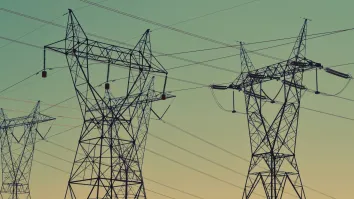
GAIL, AM Green to develop 2.5 GW of RE projects in India
They will also focus on supply of carbon, and eMethanol production and exploration.
GAIL (India) Limited and AM Green B.V. (AMG) have signed a memorandum of understanding to explore the development of up to 2.5 gigawatts of solar/wind hybrid renewable projects across India.
In a statement, AMG said the partnership will also focus on the long-term supply of carbon dioxide for hybrid renewable energy projects, and eMethanol production and exploration across the country.
Both parties will study the feasibility of supplying 350 KTA of carbon to an eMethanol production facility.
GAIL will also have an equity option to invest in the proposed eMethanol project.
“The hybrid solar/wind projects combined with Greenko's upcoming Pump Storage Projects are poised to supply Round the Clock power to the end users including the proposed eMethanol project,” AMG said.

















 Advertise
Advertise





